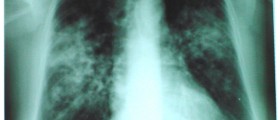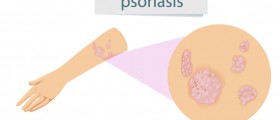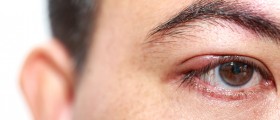
Sarcoidosis is a rather the serious systemic granulomatous inflammatory disease. It features with small lumps or nodes that form mainly in lungs. However the lymph nodes or any other organ can be affected as well. The primary cause of this illness is still unknown. Therefore the treatment options are limited and effective only to certain degree.
There is no definitive cure for sarcoidosis but the goal of the treatment is to diminish inflammation and formation of nodes. There are patients with minimal symptoms who do not require therapy at all. On the other hand those with more severe symptoms must undergo specific therapeutic regimes.
Check-ups must be regular. Dietary regimes include lots of fresh fruit and vegetables and proper intake of fluids (mainly water). A good night sleep may be beneficial as well. One should quit smoking and keep away from potential lung irritants such as dust, fumes, toxic inhalants or chemicals. Patients suffering from sarcoidosis are obliged not to take food rich in calcium and vitamin D. They are supposed to stay away from sun light as it leads to higher production of vitamin D.
As for medications sarcoidosis is basically treated with corticosteroids. These anti-inflammatory drugs are effective in prevention of lung fibrosis and other possible organ damage. Corticosteroids are given to the patients with moderate severity of the disease. These medications are at the beginning administered in large doses and during time the dose is reduced to the minimum which is then maintained. Corticosteroids are also administered in case of relapse. Unfortunately these are numerous side effects of corticosteroid therapy. These include weight gain, acne or stretch marks on the skin, problems with sleeping and depression, glaucoma and cataracts, corticosteroid induced diabetes, osteoporosis and increased susceptibility to infections. If any side effect occurs the patient is due to report it to the doctor.
In case that patient cannot take corticosteroids due to reduced tolerance or some other contraindication there are additional drugs that can be applied. These alternative drugs include methotrexate, azathioprine or inflixamab which are basically given in cases of rheumatoid arthritis, hydroxychloroquine and chloroquine which are antimalarial drugs, cyclophosphamide or chlorambucil which are chemotherapeutics, pentoxifylline and thalidomide. Adalimumbab is monoclonal antibody which is injected once a month only in patients with the severe sarcoidosis. Sarcoid arthritis may be treated with colchicine which is primarly given to patients suffering from gout. Non steroidal anti-inflammatory drugs are prescribed only in cases of arthritis and high body temperature. They must not be administered in case of lung sarcoidosis. Topical corticosteroids are administered in mild cases which are affecting eyes or skin. In terminal stage the only option is transplantation of lungs or kidneys.
The key of the treatment is to start on time mainly when symptoms are mild. In that case the disease may be stopped and further damage of the affected organs prevented.

















Your thoughts on this
Loading...